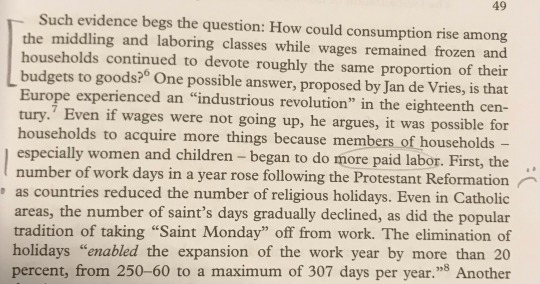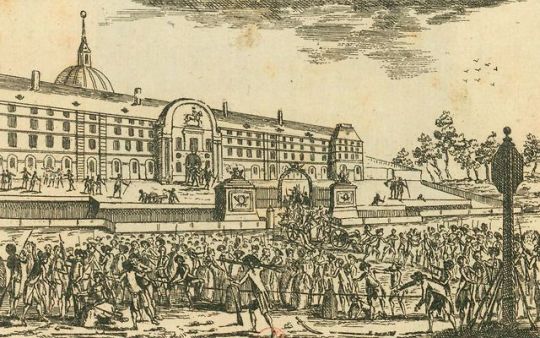#kwass
Text
The Sports Docket returns on April 4th to talk New York Knicks basketball with a special guest

Russell Richardson joins @kwass of "The Sports Docket" to talk about the "New York Knicks" in 2024 and preview the game on Thursday night, April 4th at Madison Square Garden versus the "Sacramento Kings." Russell Richardson is the Editor-in-Chief of the SB Nation "Posting and Toasting" site. It will be the first @sportsdocket in a while, and the second @showdock radio show of 2024!
Listen live by going to https://www.blogtalkradio.com/docket/2024/04/04/episode-62-sb-nation-posting-toastings-ny-knicks-site-russell-richardson or by calling (319) 527-6209!
#Russell Richardson#kwass#Sports Docket#New York Knicks#Sacramento Kings#NBA#blogtalkradio#Posting and Toasting#SB Nation#Showdock
2 notes
·
View notes
Text

I would have killed Martin Luther myself frankly
12 notes
·
View notes
Text
reading a few books about postrevolutionary french literature and well they are bad because historians have this horrible habit of being like shocked that people who supported the revolution early and in concept could later walk that back or be royalists or have a pseudo incestuous relationship with future king louis-philippe or what have you. as though like everybody in 1788 knew exactly what the montagnards were going to be up to in 6 years and also as though politics runs on abstract principles and never class interests LOL
10 notes
·
View notes
Text
For anyone wondering the article on 18th century wigs i’m reading is very interesting! It’s called
Big Hair: A Wig History of Consumption in Eighteenth-Century France by Michael Kwass
I think you can find it on JSTOR if anyone is interested
1 note
·
View note
Text
| Jan. 01, 2023 |
First Sunday of the year. Today I spent my time at church. I thanked God for the guidance and blessings he had given to me, my family, and my friends throughout the year. Now, another year has started and I prayed for the best things that will come. For me to be prepared for whatever will come for me this year. Most of all, I asked him to give me the courage to become braver for the things I fear and for the things I really wanted to do to find genuine happiness. I claim that he will be granting these prayers because I believe that whatever we ask in him, he will grant it.
I am also thankful that I had a chance to see that one seated in front. Lord, happy kwass lang po itooo😭 I don't actually know how did this start, basta I'm always happy whenever I see him hehe

0 notes
Note
Ate, gusto ko rin sumali sa game kasi wala lang, trip ko lang. N E wayzzz
So ako may kwass ako sa ibang section, kaso malayo yung room nila sa room namin so kailangan ko ng palusot para masulyapan siya, kaso ang problema rarely lang ako magkaroon ng palusot so kailangan ko nalang maghintay ng mga pagkakataon na makikita ko siya tuwing lunch. Tapos, 'tong teacher namin na tinuturuan din yung section ng kwass ko, inutusan kami na maghatid ng gamit sa room nila. So hinatid namin yung gamit sa room nila, and then andun siya,tapos ayon, na notice ako ni kwass, kinawayan niya pa nga ako. BDKABF ang landi ko (ay sorry, puwede po ba ako magmura?)
[ganto po ba?]
AHSHSHHAA ANG CUTEEEE HAHAHAHHAYA 😭 I FEEL YOU WITH THE KAWAYYY KAHIT MAGTINGINAN LANG, KINIKILIG NA AKO NANG BONGGA HUHUHU
I choose Shinwoo for you!

Love Advice from the Single-Ass Duchess of Tumblr
2 notes
·
View notes
Photo

Nous avons testé une nouvelle recette de kvas, la bière de pain (aussi écrit kvass, kwas ou kwass, gira en Lituanie). Cette fois elle est à la levure ;) On ajoute rapidement cette nouvelle recette à la précédente : https://ift.tt/33sNyiY #cuisine #food #homemade #faitmaison #boisson #kvas #bieredepain #boissonfermentée https://instagr.am/p/CFEplVgB2ds/
2 notes
·
View notes
Text
Why would you name your kid "Jaquiski" only to pronounce it "Ja-kwass-ki?"
1 note
·
View note
Text
Reading for 6 September, 2019/20 Fructidor CCXXVII
The reading skips a week because Labor Day was September 4th when I had this class (and this class was twice a week, Mondays and Wednesdays but now Wednesdays and Fridays lol).
“Saint-Domingue, Slavery, and the Origins of the French Revolution” by Jeremy D. Popkin in From Deficit to Deluge
“The Global Underground: Smuggling, Rebellion, and the Origins of the French Revolution” by Michael Kwass
“The Fall from Eden: The Free-Trade Origins of the French Revolution” by Charles Walton
“Revolutionary Regeneration and the First French Empire” by William Max Nelson, the last three in The French Revolution in Global Perspective
2 notes
·
View notes
Text
Kvas, ou bière de pain
Kvas, ou bière de pain
difficulté *
temps de préparation: 20 minutes
temps de repos: 16h
500 g. de pain de seigle
4 litres d’eau bouillante (pour immerger le pain),
40 g. de levure,
100 g. de sucre,
75 g. d’eau tiède (pour dissoudre la levure),
quelques feuilles de cassis (laurier, romarin, armoise,…)
quelques branches de menthe,
50 g. de raisins secs,
1 zeste de citron.
Faites griller le pain au four jusqu’à la…
View On WordPress
0 notes
Link
Show just ended, can listen to the audio recording at the link above!
0 notes
Photo

At the popular level, the Revolution began not with the storming of the Bastille, as is commonly thought, but with the sacking of the customs gates that encircled the city of Paris. From 11 to 14 July, professional and part-time smugglers joined merchants, petty traders, artisans, laborers, and the unemployed to destroy no fewer than forty customs posts, erected just a few years earlier to stem the flow of illicit tobacco and wine into the capital. For three days, with axes and hammers in hand, the men and women of Paris chased the Farm agents [i.e. fermiers généraux] from their posts and demolished the newly constructed pavilions. They ripped down the iron railings that closed off streets, burned auxiliary stables and sheds, vandalized statues, and gutted the neoclassical stone buildings of scales, registers, beds, benches, tables and doors – anything that could be thrown out the window and set aflame in the street. As news of the sacking of the Paris gates radiated outward from the capital, peasants and artisans in the provinces, many of whom smuggled on the side or regularly consumed illicit goods, took their cue and rebelled against the Farm as well. The dramatic culmination of more than a century of contraband rebellion, the fiscal uprisings of 1789 took on a distinctly revolutionary air as rioters went beyond contesting the authority of the Farm to demand its complete abolition, explicitly linking their acts of protest to the national rise to power of the third estate.
The Global Underground: Smuggling, Rebellion, and the Origins of the French Revolution (M. Kwass), in: The French Revolution in Global Perspective (Desan / Hunt / Nelson).
166 notes
·
View notes
Note
can you talk a bit more about weber (im refering to a post you made earlier today i think)? i know a bit about the protestant ethic theory but not really the historical context in which it was written nor how it's used today. thanks!
so, weber's argument is essentially that protestant (specifically calvinist and puritan) theology played a major causal role in the development of capitalism in northern europe following the reformation. his position was that protestant ethics, in contrast to catholicism, placed a high moral value on secular, everyday labour, but also discouraged the spending of one's wages on luxury goods, tithing to the church, or giving overmuch to charity. thus, protestants invested their money in business and commercial ventures instead, turning the generation of capital into a moral endeavour and venerating hard work and economic productivity as ways to ensure one's soul was saved (as the buying of indulgences was not an option for protestants).
this is a bad argument. at core it is idealist, subordinating an economic development to religious ideology. weber never explains how the actual, material economic changes he wants to talk about were effected by a set of ideas; he doesn't consider the possibility that the ideas themselves reflected in some way the material and economic context in which they were developed; he doesn't differentiate between protestantism as a causal factor in the development of capitalism, versus the possibility that capitalism and protestant conversion both resulted from some other factor or set of factors. <- these types of problems are endemic to 'history of ideas' aka 'intellectual history' because merely writing a history of the (learned, published) ideas circulating at a given time doesn't tell you jack about how and whether those ideas were actually implemented, how common people reacted to them or resisted them, what sorts of material circumstances the ideas themselves were formulated amidst, and so forth.
in the case of weber, it's very easy to poke holes in this supposed relationship between protestantism and capitalism. even in western europe alone, we could look at a country like france, which was quite catholic, never became predominantly or even significantly protestant, and yet also industrialised not long after, eg, the netherlands and england. we could also look at what historian michael kwass calls "court capitalism" in 18th-century france, which was a largely non-industrial form of capitalism that depended on the catholic king's central authority in order to ensure a return on investment. france at this time had a burgeoning luxury culture and a centralised, absolutist government that was closely entwined with the powerful catholic church—yet it also had economic development that is recognised as early capitalist, along with growing social and economic tensions between the nascent bourgeois and petit-bourgeois classes and the aristocracy. this is not even close to being the earliest example of capitalist or proto-capitalist economic development (some predates the reformation!), and again, this is within western europe alone—we could and should also point out that capitalism is not solely a european phenomenon and can and does coexist with other, radically different, religious ideology (i have problems with jack goody's work but this is something i think it can help elucidate).
weber argued that the 'spirit of capitalism' was no longer dependent on the protestant theology that had initially spawned it—but again, here we see issues with idealist methodologies in history. at what point, and how, does this 'spirit' become autonomous? what is it that has taken hold, if weber is not talking about the 'protestant ethic' itself and is also not interested in analysing the material changes that comprise capitalism except as effects of some underlying ideology? well, it's what he sees as a general shift toward 'rationalisation' and 'disenchantment' of the world, leading to an understanding of late 19th- and early 20th-century capitalism as a kind of spiritually unmoored servitude to mechanism and industry. this in turn relates back to weber's overall understanding of the legacy of the 'scientific revolution', which is another can of (bad) worms. there is a lot to say about these elements of weber's thought, but for starters the idea that europe was the progenitor of all 'scientific advancement', that it then simply disseminated such knowledge to the rest of the world (the apotheosis of the centre-periphery model, lmao), and that europe has become 'disenchanted', ie irreligious, as a result of such scientific advancement... is just patently bad analysis. it's eurocentric, chauvinistic, and simply demonstrably untrue in like twelve different ways.
anyway, when i see conservatives and reactionaries cite weber, i'm not surprised. his arguments are conservative (his entire intellectual paradigm in this text was part of his critique of marx and the premises of materialist / contextualist history). but when i see ostensible leftists doing it, often as some kind of dunk on protestantism (or christianity more generally, which is not even a good reading of weber's own understanding of catholicism), it's more irritating to me. i am not interested in 'leftisms' that are not materialist. weber's analysis is a bad explanation of how and why capitalism took hold; it doesn't even work for the limited northern european case studies he starts with because, again, idealist history fundamentally fails to explain how ideology itself creates material change. like, "some guy writes something down -> ??? -> everyone just agrees with him -> ??? -> stuff happens somehow" is not a good explanation of any phenomenon, lmao. if we are stuck on the idea that capitalism, a set of economic phenomena and real relations of production, is the result of ideology, then we will also be stuck trying to 'combat' capitalism on the ideological level. it's unserious and counterproductive. weber's analysis has retained an outsize position in the sociological historiography because it's an attractively simplistic, top-down, idealist explanation of both capitalism and protestantism that makes centuries worth of material changes to production forms into a kind of ideological coup ushering in an age of 'rationalism'. this is just not a text that tells us, leftists, anything politically useful. at best it is an explication of the internal psychological logics of (some) forms of protestantism in (some) places and contexts.
265 notes
·
View notes
Text

"Komm zu uns in den Donbass!" Angelina Jolie enttäuscht Roskosmos-Chef
01.05.2022, 10:08 Uhr
Überraschend besucht Angelina Jolie die Westukraine - was prompt den Zorn des Chefs der russischen Raumfahrtbehörde hervorruft. "Du, Freundin, hast mich enttäuscht", schreibt Rogosin und erklärt ihr dann in einem Gedicht die Vorzüge des Donbass: Wodka, Bier und Kwass.
Der Chef der russischen Raumfahrtagentur Roskosmos, Dmitri Rogosin, hat den Besuch von Hollywoodstar Angelina Jolie in Lwiw kritisiert. "Du, Freundin, hast mich enttäuscht", schreibt er in einem Tweet, den der Nachrichtenkanal Nexta weiterverbreitet. Eigens für die Schauspielerin und Regisseurin verfasst Rogosin auch ein Gedicht, in dem er die Vorzüge des von russischen Truppen besetzten Donbass preist: "Komm zu uns in den Donbass! Hier gibt es Wodka, Bier, Kwass", beginnt er seine Zeilen. Und offenbar hat die umkämpfte Region noch mehr zu bieten, wie Rogosin betont: "Es gibt bei uns auch Butter, es gibt bei uns auch Brot."
Schönheit beleidige keinen harten Soldaten, dichtet Rogosin weiter und beendet sein Gedicht dann mit einem Appell an die 46-jährige Schauspielerin: "Im Kino sahen wir dich, und wir wären froh, dich wiederzusehen."
Rogosin war von 2011 bis Mai 2018 einer der stellvertretenden Ministerpräsidenten Russlands, zuvor arbeitete er als ständiger Vertreter Russlands bei der NATO. Er ist bekannt für nationalistische Parolen, die NATO-Osterweiterung verglich er einmal mit Hitlers "Drang nach Osten", im Krieg fliehende Georgier bezeichnete er als "Kakerlaken". Mehr zum Thema
Schon vor dem russischen Angriff auf die Ukraine am 24. Februar herrschte im Osten der Ukraine Krieg. Seit 2014 waren dort Tausende Menschen ums Leben gekommen. Im nun herrschenden Ukraine-Krieg konzentrieren sich auch die russischen Angriffe auf den Osten des Landes.
Überraschungsbesuch von Jolie in Lwiw
Jolie hatte überraschend die westukrainische Stadt Lwiw besucht und dort Flüchtlinge getroffen. Wie die Stadtverwaltung am Samstag mitteilte, besuchte sie Kinder, die bei einem Raketenangriff auf den Bahnhof im ostukrainischen Kramatorsk verletzt worden waren. Auf Fotos sieht man, wie die Schauspielerin Kinder in den Arm nimmt. Angelina Jolie ist Sondergesandte des UN-Flüchtlingshilfswerks. In Lwiw halten sich zahlreiche Flüchtlinge aus dem Osten der Ukraine auf.
0 notes

